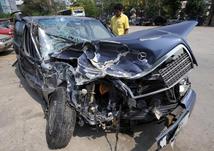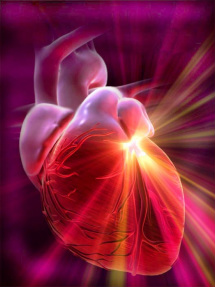Effects of Sleep Deprivation
Short-Term Effects...
The causes of sleep deprivation can affect the lives of teenagers in the short term. According to Palo Alto Medical Foundation (2010), the effects of sleep deprivation also includes anxiety, drowsiness (leading to drowsy driving), forgetfulness, distractibility, decreased performance and alertness, memory and cognitive impairment, and occupational injury. The CDC Office of Women’s Health (2009) also states that teens and young adults, who do not get enough sleep are at risk for problems, such as automobile crashes poor grades and school performance, depressed moods, and problems with friends, fellow students, and adult relationships. Not getting enough sleep can cause daytime sleepiness, sluggishness, and difficulty concentrating or making decisions (CDC Office of Women’s Health, 2009). Some of these short-term effects are further explained through many scientific studies.

Many studies show that sleep deprivation is a very dangerous habit especially on the roadways. According to a study by the National Highway Traffic Safety Administration, “driver drowsiness is responsible for around 100, 000 motor vehicle accidents and 1,500 deaths each year.” This means that a motor accident occurs about once every five minutes and leads to about a 1% chance ending in fatality nationally. Further studies show that “sleep deprived people who are tested with a driving simulator…perform as poorly as or worse than people who are intoxicated” (Patient Education Institute, 2008). Understanding the fatal consequences of sleep deprivation could hopefully motivate teens to find ways to cope and break away from this dangerous habit.
Long-Term Effects...

Sleeping is essential; not
getting enough of it will affect a teen’s body, immune system, and physical performance
in the long term. According to the CDC Office of Women’s Health
(2009), insufficient
sleep is associated with a number of chronic diseases and conditions,
such as diabetes, cardiovascular diseases, obesity, and depression. This information shows that a lack of sleep
not only affects a person in the short-term but also the long-term. According to Palo Alto Medical Foundation (2010), high blood pressure, heart attack, psychiatric problems
(including other mood disorders), and poor
quality of life are other long-term effects of sleep deprivation. A lack of sleep is significant to a person’s physical
performance and it will also potentially tarnish a teenager’s in the long run.
For more information on effects of sleep deprivation...
CDC Office of Women’s Health: http://www.cdc.gov/family/college/weeblylink_new_window
Palo Alto Medical Foundation: http://www.pamf.org/sleep/about/healtheffects.htmlweeblylink_new_window
The Patient Education Institute, Inc: http://www.nlm.nih.gov/medlineplus/tutorials/sleepdisorders/nr249103.pdfweeblylink_new_window
National Sleep Foundation: http://www.sleepfoundation.orgweeblylink_new_window
Palo Alto Medical Foundation: http://www.pamf.org/sleep/about/healtheffects.htmlweeblylink_new_window
The Patient Education Institute, Inc: http://www.nlm.nih.gov/medlineplus/tutorials/sleepdisorders/nr249103.pdfweeblylink_new_window
National Sleep Foundation: http://www.sleepfoundation.orgweeblylink_new_window
Picture References:
http://www.theepochtimes.com/n2/images/stories/large/2010/06/09/car80723623.jpg
http://www.hsph.harvard.edu/research/cvdepi/images/heart_attack2.jpg
http://www.theepochtimes.com/n2/images/stories/large/2010/06/09/car80723623.jpg
http://www.hsph.harvard.edu/research/cvdepi/images/heart_attack2.jpg
